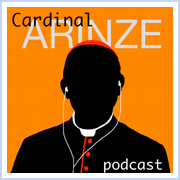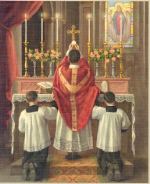An Interesting Bulletin Article...
MY ANNUAL SUMMER SCRIPTURE SEMINAROh, pleeeeeze....spare us! It's no wonder his favorite biblical scholar is Fr. Raymond Brown.
Two weeks ago I thoroughly enjoyed a week of study at the seminary in Chicago (Mundelein). The topic was interpreting the Bible. We learned more about how early Christians interpreted the scriptures as the Jewish people did using "midrash" or teaching by means of a story. Then borrowing from their Greek culture, they also used allegory and typology (images that prefigure a later reality) to understand a scripture text. St. Thomas Aquinas in the late middle ages had some rather radical ideas about interpretation of Scripture - namely using classical Greek philosophy and "modern" theology. In the Modern Era (late 19th to 20th century) Protestant scripture scholars developed the "historical critical method" which interpreted the bible within the context of archaeological discoveries and the study of the literary styles of the scripture texts. They would study the details about the author, what writing style, what purpose for writing, the community to whom he was writing, what era, what geographical area. In 1941, Pope Pius XII decreed that all modern Catholic scholarly study of the Bible should utilize this historical critical method as the norm, and so they have. And in the process Catholic scripture scholars have taken a leadership role in modern interpretation of the Bible in the last half century.
The field of interpretation continues to grow and change, and so there are many challenges for people of faith as they continue to read, pray with, and be inspired by the Bible. It is becoming clear that there is a wide spectrum of approaches among 21st century Christians seeking to understand the truth of God's Word in the Bible. On one end you have the "post-modern" approaches which have become so skeptical of anything divine in the Bible that they decline to say that you can know anything for certain from the Bible. On the other extreme are the fundamentalists who are absolutely certain about their interpretation of Scripture and the absolute correctness of God's truth as they see it. This leads to absolute intolerance of anyone else's position but their own.
One of our speakers proposed that the best Catholic position is somewhere in the middle of this spectrum. He described it as "non-foundational biblical theology" which leads to a life of faith and moral living with a stance of humility before the truth of God. By this, I think he meant that studying the Bible is a never-ending project of searching for a satisfactory formulation of truth. We must be humble in admitting that we, even the Church, can never completely in this world explain fully God's truth. Thus as the human condition changes in every age, we should presume that our understanding of God's truth changes - God does not change, but every age is different. The truth of Scripture and Tradition are not to be seen as a depository of absolutely unchanging truths. One example of this is that the Bible in the time it was written was comfortable with slavery and presumed it would always be part of the human condition; it took the Church 18 centuries to change this teaching to respect the right to freedom for every human being.
Well, I am starting to get carried away with this Bible stuff. Maybe I will have some further ideas later.
He has used this "slavery" teaching before with me as an example of how Church teaching changes...Another was 'usury'....And these were used as examples of why we don't really have to believe the dogma of Mary's Perpetual Virginity.
And another priest at the parish keeps insisting that we will have "women priests". And he wonders why I attend Mass at other parishes rather than my own parish...









